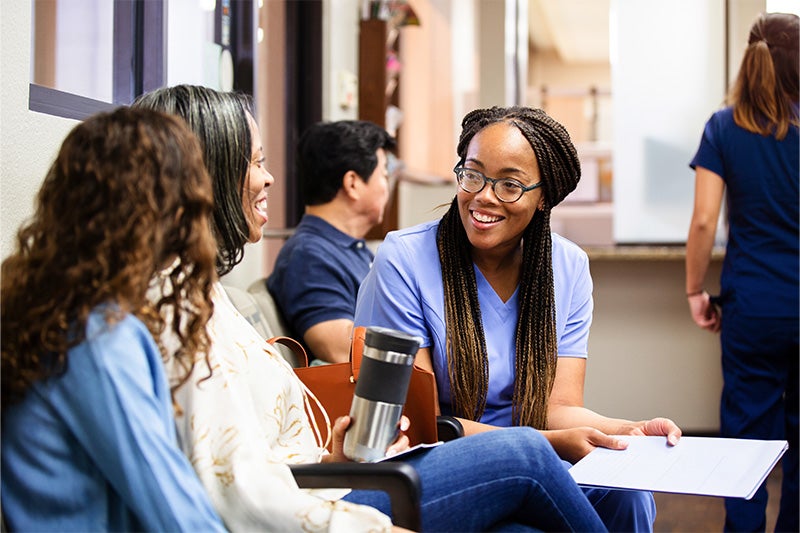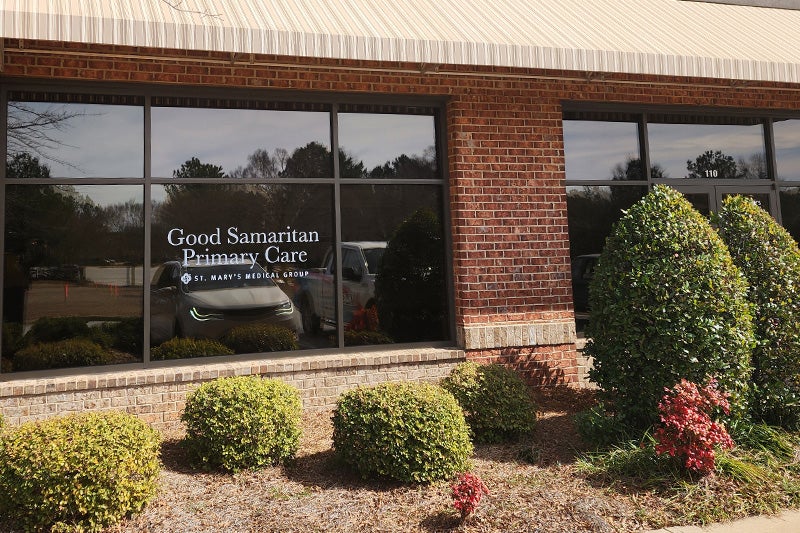How to Know If You Are at Risk for Colorectal Cancer: Insights from St. Mary’s Health Care System
March 10, 2025Tags: Colorectal Cancer
At St. Mary’s Health Care System, we are committed to helping you understand your health and take proactive steps to protect it. Knowing your risk factors for colorectal cancer can empower you to make informed decisions about screening and prevention.
What Increases Your Risk of Colorectal Cancer?
Several factors can raise your risk of developing colorectal cancer.
It’s essential to be aware of these risks so you can discuss them with your healthcare provider.

Genetic Factors:
- Age: The risk of colorectal cancer increases as you get older, especially after age 45.
- Family History: If a close relative (like a parent, sibling, or child) has had colorectal cancer or precancerous polyps, your risk may be higher.
- Personal Medical History: Polyps or colorectal cancer: If you've had polyps or cancer before, you’re at increased risk of recurrence.
- Inflammatory bowel diseases (IBD): Conditions like Crohn’s disease or ulcerative colitis can cause long-term inflammation in the colon, raising cancer risk.
- Genetic Factors: Certain inherited syndromes, like Lynch syndrome or familial adenomatous polyposis (FAP), significantly increase colorectal cancer risk.
Lifestyle Factors:
- Diet: A diet high in red or processed meats may raise your risk.
- Physical inactivity: Lack of exercise is linked to a higher chance of developing cancer.
- Smoking and heavy alcohol use: Both have been associated with an increased risk of colorectal cancer.
How to Lower Your Risk
While some risk factors can’t be changed, others are within your control. You can reduce your risk by:
- Eating a healthy diet: Focus on fruits, vegetables, and whole grains while limiting red- and processed meats.
- Staying active: Regular physical activity helps keep your body and digestive system healthy.
- Avoiding tobacco and limiting alcohol: If you don’t smoke or drink, don’t start. If you do, quitting smoking and drinking only in moderation can lower your risk.
- Getting screened: Screenings can catch precancerous polyps before they become cancerous.


When to Talk to a Doctor
If you have any risk factors or are over 45, it’s a good idea to talk to your doctor about colorectal cancer screenings. Early detection can save lives, and our dedicated team is here to guide you through the process.
Primary Care Locations:
- Athens Internal Medicine Associates – Athens, GA
- Community Internal Medicine of Athens – Athens, GA
- Georgia Family Medicine – Watkinsville, GA
- Good Samaritan Primary Care – Greensboro, GA
- Sacred Heart Primary Care – Lavonia, GA
- St. Mary’s Family Medicine – Bogart, GA
- St. Mary’s Internal Medicine Associates – Athens, GA
- St. Mary’s Primary Care – Athens, GA.
Specialty Care for Advanced Treatment:
- Athens General & Colorectal Surgeons – Athens, GA
- Athens General & Colorectal Surgeons – Greensboro, GA.
- Sacred Heart General Surgery – Lavonia, GA
Several community-based providers also provide services at St. Mary’s Hospitals.
Take Charge of Your Health Today
Understanding your risk factors is the first step toward prevention. At St. Mary’s, we are here to support you with compassionate care and expert guidance. Whether you need a screening or want to discuss your family history, our primary care providers and colorectal specialists are ready to help you stay healthy.
Reach out to one of our locations to schedule an appointment or learn more about colorectal cancer risk and prevention. Your health is our priority, and we’re honored to be part of your wellness journey.

Schedule Your Screening Today
Find a Location Near You
Importance of Colorectal Cancer Screenings
Are You at Risk?



